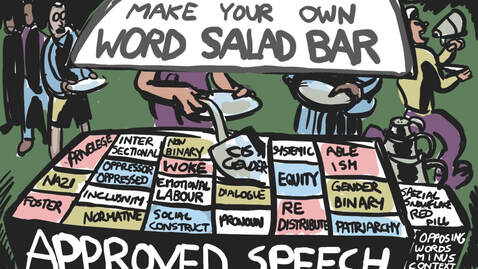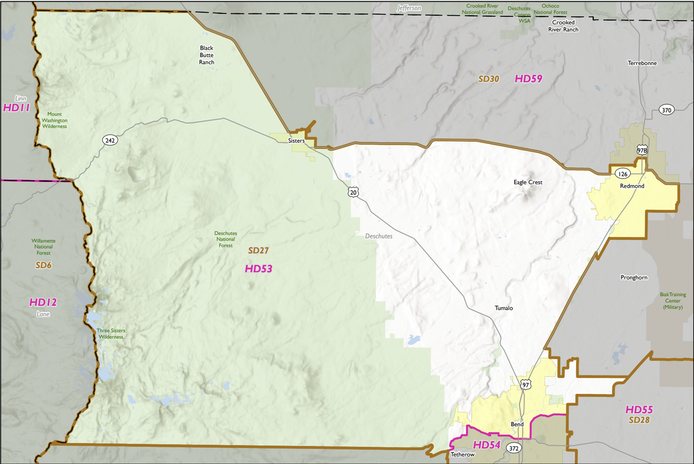Linguistic Fraud, Drugs and Death
As seen in Bend Bulletin - 02/22/2024
As seen in Bend Bulletin - 02/22/2024
Measure 110, which decriminalized possession of hard drugs, should not be a political issue. It should not be a partisan issue. It should not be an issue driven and dictated by special interests, financial gain, and political ambition.
Hard drugs are not political. Addiction is an equal opportunity destroyer. Drugs burn out the brains, destroy the lives, and kill the kids of Democrats, Republicans, Independents and those who couldn’t care less about politics. There is nothing morally good or socially redeeming about drug use. It is a behavior that should not be pandered to or considered acceptable in our society.
Measure 110, which decriminalized possession of hard drugs, should not be a political issue. It should not be a partisan issue. It should not be an issue driven and dictated by special interests, financial gain, and political ambition. Unfortunately, it is all of that. From the beginning, Measure 110 has been a fraud perpetrated by out-of-state special interests who pumped millions of dollars into getting the measure passed, with the support of the Democrat leaders who control our state.
Voters were sold a bill of goods. They continue to be deceived though the linguistic fraud employed by special interest groups and political leaders. Here are some examples:
Measure 110 decriminalized “user quantities” and “personal use” of hard drugs. This linguistic sleight of hand has been used so much we accept it and regurgitate it as valid. Underlying that deceptive wording is a presumption that personal drug use (what other kind is there?) is acceptable behavior, that it is somehow OK, and socially good. It pretends that there is an appropriately safe “user quantity” of fentanyl. There is no “safe” quantity of hard drugs. Drugs kill. It’s linguistic fraud to state otherwise.
The fraud continues, because asserting that “personal use” is somehow OK, implicitly grants approval to the sellers of the drugs. Otherwise, how could someone obtain their “rightful” quantity for personal use? In Oregon, we have not only given explicit approval to hard drug use, we give tacit approval to the drug dealing industry.
One of the arguments made by advocates of decriminalization is that drug use is a “victimless crime.” Consider the internal contradiction in that term. While acknowledging that drug use is bad, it attempts to convince that the only victim is the user. That is patently false. Our whole state is a victim of drug use. Addiction and mental illness do not affect only the drug user, they adversely impact us all.
Another gem: “You can’t legislate morality.” Of course we can, and we do. Simply stated, morality is what a culture collectively deems as good or bad. Laws are made to support what we consider good and penalize what we think is bad. In Measure 110, we are legislating for immorality. Consequently, we are all complicit in the deaths of our kids as we pander to drug use and drug distribution.
Here's one more: “We can’t arrest our way out of this crisis.” There is so much fraud baked into this statement that I don’t have space to unpack it. Here’s what I know. Strong deterrence and painful consequences shape behavior. When I was an Army officer, many soldiers in my unit were inner-city kids who had been busted on drug related charges. They did not enlist because of a deep desire to serve their country. They enlisted because a judge said, “Young man, you have a choice. Do hard time in jail or enlist and change the course of your life. Choose wisely.” Many of these guys became model soldiers and productive members of society, but they became so because of the deterrent factor of jail and the alternative opportunity for positive life change through service.
It's time to dispense with linguistic fraud and declare outright that we don’t want drug dealing and drug use in Oregon. Strong deterrence through at least Class A misdemeanor penalties, meaningful diversion programs for users, and severe penalties for dealers will be a step in the right direction. Anything less will simply perpetuate the fraud. And the death toll will rise.
Measure 110, which decriminalized possession of hard drugs, should not be a political issue. It should not be a partisan issue. It should not be an issue driven and dictated by special interests, financial gain, and political ambition. Unfortunately, it is all of that. From the beginning, Measure 110 has been a fraud perpetrated by out-of-state special interests who pumped millions of dollars into getting the measure passed, with the support of the Democrat leaders who control our state.
Voters were sold a bill of goods. They continue to be deceived though the linguistic fraud employed by special interest groups and political leaders. Here are some examples:
Measure 110 decriminalized “user quantities” and “personal use” of hard drugs. This linguistic sleight of hand has been used so much we accept it and regurgitate it as valid. Underlying that deceptive wording is a presumption that personal drug use (what other kind is there?) is acceptable behavior, that it is somehow OK, and socially good. It pretends that there is an appropriately safe “user quantity” of fentanyl. There is no “safe” quantity of hard drugs. Drugs kill. It’s linguistic fraud to state otherwise.
The fraud continues, because asserting that “personal use” is somehow OK, implicitly grants approval to the sellers of the drugs. Otherwise, how could someone obtain their “rightful” quantity for personal use? In Oregon, we have not only given explicit approval to hard drug use, we give tacit approval to the drug dealing industry.
One of the arguments made by advocates of decriminalization is that drug use is a “victimless crime.” Consider the internal contradiction in that term. While acknowledging that drug use is bad, it attempts to convince that the only victim is the user. That is patently false. Our whole state is a victim of drug use. Addiction and mental illness do not affect only the drug user, they adversely impact us all.
Another gem: “You can’t legislate morality.” Of course we can, and we do. Simply stated, morality is what a culture collectively deems as good or bad. Laws are made to support what we consider good and penalize what we think is bad. In Measure 110, we are legislating for immorality. Consequently, we are all complicit in the deaths of our kids as we pander to drug use and drug distribution.
Here's one more: “We can’t arrest our way out of this crisis.” There is so much fraud baked into this statement that I don’t have space to unpack it. Here’s what I know. Strong deterrence and painful consequences shape behavior. When I was an Army officer, many soldiers in my unit were inner-city kids who had been busted on drug related charges. They did not enlist because of a deep desire to serve their country. They enlisted because a judge said, “Young man, you have a choice. Do hard time in jail or enlist and change the course of your life. Choose wisely.” Many of these guys became model soldiers and productive members of society, but they became so because of the deterrent factor of jail and the alternative opportunity for positive life change through service.
It's time to dispense with linguistic fraud and declare outright that we don’t want drug dealing and drug use in Oregon. Strong deterrence through at least Class A misdemeanor penalties, meaningful diversion programs for users, and severe penalties for dealers will be a step in the right direction. Anything less will simply perpetuate the fraud. And the death toll will rise.
|
The fraud continues, because asserting that “personal use” is somehow OK, implicitly grants approval to the sellers of the drugs.
|
The fraud continues, because asserting that “personal use” is somehow OK, implicitly grants approval to the sellers of the drugs. |
Michael Sipe is an entrepreneur, business coach and mergers and acquisitions advisor in Bend.
(to help elect Michael Sipe, Republican Candidate for Oregon House District 53)



